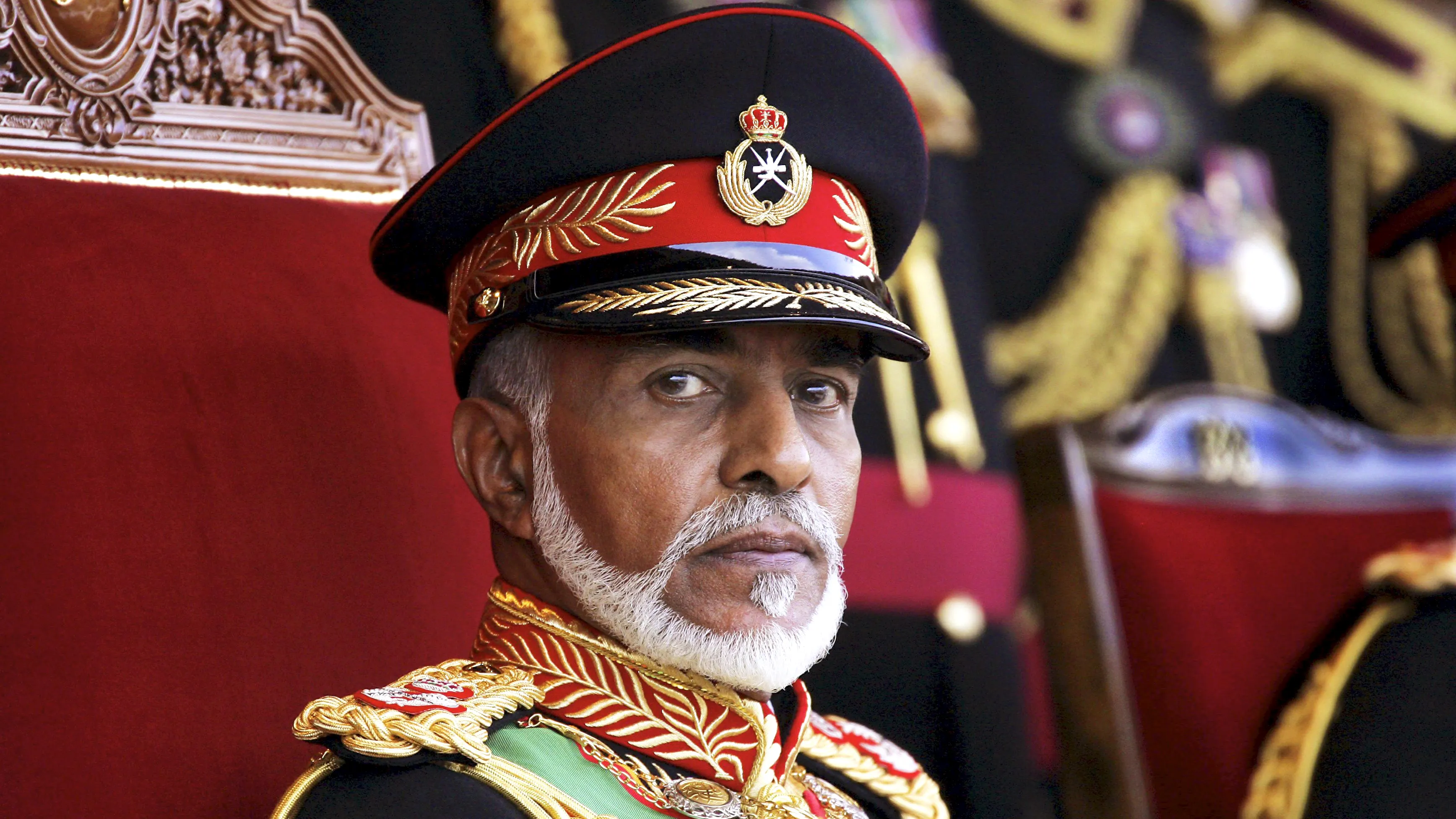The Sultan of Oman, Qaboos bin Said al Said, died on Friday at the age of 79 after a recent battle with health problems, according to Oman state media.
The New York Times reported that Qaboos had championed an independent and non-alignment foreign policy agenda, which “gave Oman a role akin to a Middle Eastern Switzerland, where foes battling each other elsewhere could meet for quiet talks.”
“He became a rare leader who maintained ties with a wide range of powers that hated one another, including Iran, Israel, the United States, Saudi Arabia and the Houthi rebels in Yemen,” The Times reported. “A few years [after 2011], he brought the two foes together again by hosting covert talks between Iran and the Obama administration that paved the way for an international agreement over Iran’s nuclear program.”
Reuters reported that a “1996 statute says the ruling family will choose a successor within three days of the throne becoming vacant” and that if the ruling family fails then “council of military and security officials, supreme court chiefs and heads of the two consultative assemblies will put in power the person whose name has been secretly written by the sultan in a sealed letter.”
Journalist Yashar Ali noted the significance of Qaboos’ death, writing on Twitter, “One week after the death of Qasem Suleimani…this is a significant event. Both Iranian and American leaders will be at his funeral. This is a major event because Oman has been an island (not literally) of tranquility in the Middle-East and the Sultan was one of the few people who could mediate between the US and Iran.”
2. This is a major event because Oman has been an island (not literally) of tranquility in the Middle-East and the Sultan was one of the few people who could mediate between the US and Iran.
The Sultan has no apparent heir…a council will likely decide who his heir is
— Yashar Ali 🐘 (@yashar) January 11, 2020
“The reason this is a bigger deal now is tensions are at an all time high with the US and Iran,” Ali added. “If he had died a year ago, it would have been a major moment (he’s been in power for 50 years), but not as significant as this.”
5. The reason this is a bigger deal now is tensions are at an all time high with the US and Iran. If he had died a year ago, it would have been a major moment (he's been in power for 50 years), but not as significant as this.
— Yashar Ali 🐘 (@yashar) January 11, 2020
The news comes as the United States and Iran were on the brink of an all out war this week when Iran launched missiles at U.S. forces in Iraq in retaliation for President Donald Trump authorizing a drone strike that killed Islamic Revolutionary Guard Corps-Quds Force commander Qassem Soleimani.
“Omani leaders assert that engagement with Iran better mitigates the potential threat from that country than confrontation—a stance that has positioned Oman as a mediator in regional conflicts in which Iran or its proxies are involved,” the Congressional Research Service reported. “Omani leaders have not expressed concerns about potential Iranian meddling in Oman’s affairs, in part because Oman’s citizens are not generally receptive to either Sunni or Shiite Islamist extremist appeals.”
On the subject of U.S-Iranian relations, the Congressional Research Service noted that Oman has been a beneficial partner to the United States in talking to Iran.
“U.S. officials began secretly meeting with Iranian officials in early 2013—before the June 2013 election of Hassan Rouhani as Iran’s president—to explore the possibility of a nuclear deal,” the Congressional Research Service wrote. “After Sultan Qaboos’s August 25-27, 2013, visit to Iran, an interim nuclear agreement was agreed between Iran and the “P5+1” (United States, UK, France, Russia, China, plus Germany) in November 2013.”
“Oman also has been an intermediary through which the United States and Iran have exchanged captives,” the Congressional Research Service added. “Oman brokered a U.S. hand-over of Iranians captured during U.S.-Iran skirmishes in the Persian Gulf in 1987-1988. In 2007, Oman helped broker Iran’s release of 15 sailors from close U.S. ally the United Kingdom, who Iran had captured in the Shatt al Arab waterway. U.S. State Department officials publicly confirmed that Oman helped broker the 2010-2011 releases from Iran of three U.S. hikers (Sara Shourd, Josh Fattal, and Shane Bauer), in part by paying their $500,000 per person bail to Iran.”
The Congressional Research Service noted that the Trump administration reached out to Oman last year and sought the nation’s help for de-escalating tensions between the U.S. and Iran.

.png)
.png)

